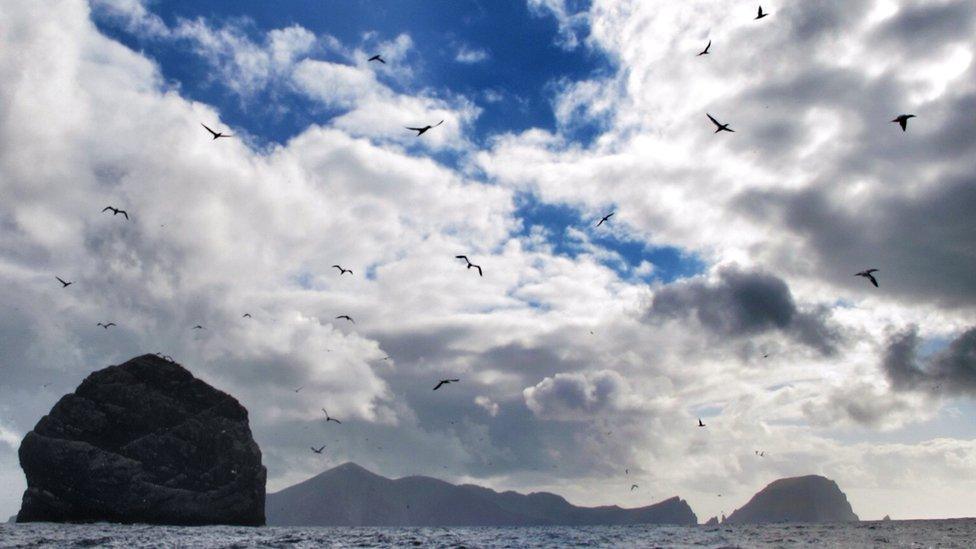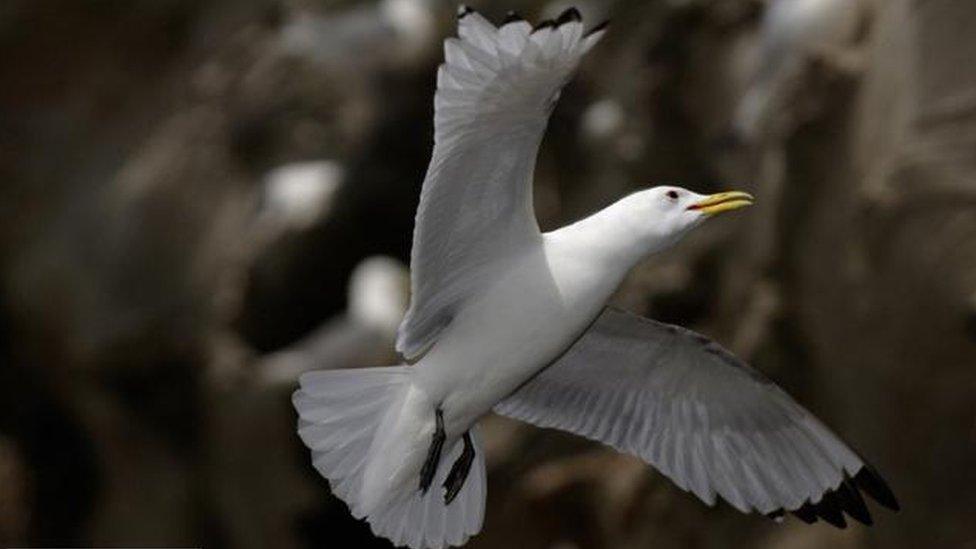St Kilda kittiwake numbers 'at lowest level'
- Published

The St Kilda archipelago is home to one of the most significant sanctuaries for seabirds in the Atlantic Ocean
Kittiwake numbers on St Kilda have plummeted to their lowest level, with experts fearing the population is at risk of collapse.
The National Trust for Scotland (NTS), which monitors the archipelago's bird population, said numbers were falling across a range of seabird species.
Across seven monitoring sites there was just one kittiwake nest this season. The only chick that hatched died later.
The islands are 64km (40 miles) north-west of the Western Isles.
They are recognised as one of the most significant sanctuaries for seabirds in the Atlantic.
But the NTS said its annual survey suggested that after a century of growth, seabird populations on the archipelago were rapidly falling.

The only kittiwake chick that hatched on St Kilda this year did not survive
It is thought that significant changes in the marine ecosystem, with plankton moving 1,000km (621 miles) to the north is reducing a key food source around St Kilda.
Dr Richard Luxmoore, senior nature conservation adviser at the trust, said: "Seabirds are essentially part of the marine ecosystem. Although they breed on land they spend most of their life out at sea and they can tell us a lot about its health.
"In the last 30 years plankton communities have shifted northward by 1,000km, more than the distance from Edinburgh to Paris, and it's having a huge impact.
"If vegetation shifted by a similar distance there would be pandemonium, but because it's happening in the sea we tend not to notice."
This year's seabird survey, which monitors breeding abundance and success, also recorded significant declines in the populations of fulmars, guillemots, puffins and razorbills.
Seven of the seabird species found on St Kilda have significant local populations and four of them - the northern gannet, Atlantic puffin, great skua and Leach's storm-petrel - are important on an international scale.
Dr Luxmoore added: "If the inhabitants of St Kilda were to come back now nearly 90 years after their evacuation and see the cliffs that were once teeming with seabirds now almost empty, they would be horrified to see what has happened on the island where they once lived."
- Published23 August 2012
![Kittiwakes [Pic: RSPB]](https://ichef.bbci.co.uk/ace/standard/464/mcs/media/images/56371000/jpg/_56371134_kittiwake_rspb_466282.jpg)